
Taking macro images often requires handheld shooting, so having the best camera for macro photography providing sharp results is essential. First and foremost, image quality is crucial.
You want a camera that captures high-resolution images with excellent clarity. This is important because you want to showcase the object in the best light possible, highlighting all its unique features, its texture & tiny details.
Now, when it comes to choosing a camera for macro, there are a few key factors to keep in mind. Firstly, you'll want a camera with a generous working distance. This refers to the space between the lens and your subject, which allows you to get up close and personal without disturbing your subject or casting unwanted shadows.
Next, autofocus performance and in-body image stabilization are crucial as I see after all my camera tests and ties. You want a macro photography camera that can focus quickly and accurately, especially since macro subjects tend to be fast-moving. And since macro photography often requires slow shutter speeds, good image stabilization is essential for keeping those shots sharp when handheld.
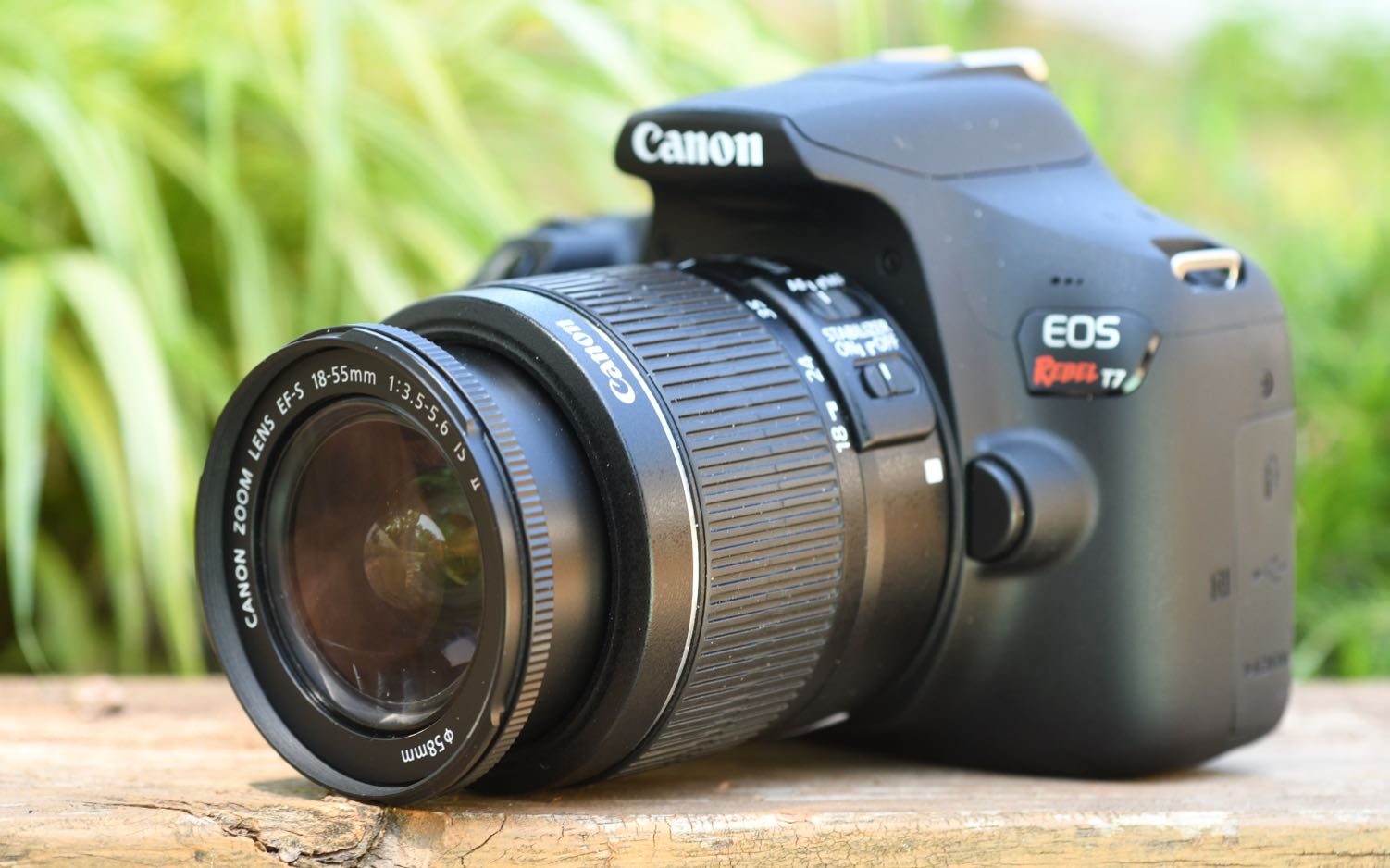
Zoom Type: optical 3x | Sensor: APS-C 24.1 MP | Focusing: 9-point focus system | Screen: 3in | Weight: 1.04 lbs
If you're looking for the best camera for macro at an affordable price, this Canon camera is the best option for you. Its body is made of aluminum alloy and polycarbonate resin. Besides, it has a fiberglass chassis.
This camera comes with textured covers with a deep grip on the front and a small thumb on the back. These features make it convenient and safe to use. Like other cheap Canon cameras, this option has a menu with fast access through the Q button.

You can use the AF system when composing photos with the viewfinder. It performs precisely and fast even in pretty low light conditions. Camera settings are very simple and intuitive, so it is suitable even for beginners.
It delivers bright and saturated pictures even if you photograph using the Auto and Standard image styles.

Zoom Type: optical 4x | Sensor: 1/2.3-inch | Focusing: 25-point AF | Screen: 3in | Weight: 0.56 lbs
Olympus Tough TG-6 is a perfect option for photographers interested in macro photography who enjoy shooting underwater or often work in severe weather conditions. Its body can withstand shock impact well. You can effortlessly switch between different modes when taking macro photos, which makes this camera suitable even for beginners.

This Olympus camera for macro photography has several advantages that make it better than some other models available on the market. It supports focus stacking and focus bracketing. In addition, it has excellent close-focusing distance.
The only shortcoming of this model is that it has a small-sized sensor, which makes it less convenient to use. It is compatible with a limited choice of lenses suitable for macro shooting, however, it still allows you to find a lens that suits your needs best.

Zoom Type: optical 3x | Sensor: APS-C 24.2MP | Focusing: 11-point focus system | Screen: 3in, 921,000 dots | Weight: 0.8 lbs
If you are looking for the best macro camera, the Nikon D3500 is a great option to consider. It allows you to take high-resolution photos with an impressive level of detail. You can use it with a variety of macro lenses, which makes this model suitable for photographers with different budgets and needs.

The camera has intuitive controls. It makes it perfect even for novices. You can take photos in Guide mode and follow the tips on the LCD screen to select the right settings depending on the situation. However, the rear screen doesn’t have touchscreen functionality. Because of this, you will need to use physical buttons and dials to adjust the settings.
As the screen can’t be tilted, it will be difficult for you to take low-angle photos. Other than this, this Nikon photography camera doesn’t have any significant shortcomings. It stands out among other models sold in this price bracket for its extensive lens compatibility.
To overcome this limitation and further enhance your macro photography experience, consider pairing the Nikon D3500 with one of the best tripods for macro photography. A sturdy and flexible tripod can help stabilize the camera, allowing you to achieve precise focus and composition in your close-up shots.
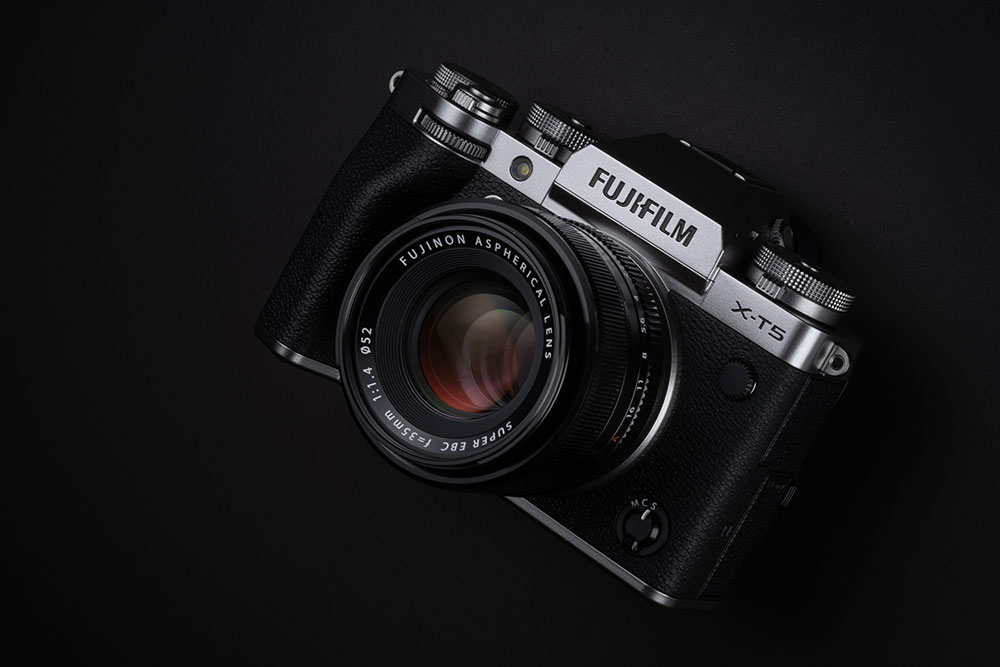
Zoom Type: optical 3x | Sensor: APS-C | Focusing: Autofocus | Screen: 3-inch LCD screen | Weight: 0.02 lbs
The image quality of Fujifilm X-T5 camera for macro photography is outstanding, thanks to its high-resolution 40.2-megapixel X-Trans 5 HR CMOS sensor. This sensor allows for capturing an incredible amount of detail, which is crucial for macro shots.
One of the standout features of the X-T5 is its fantastic film simulation modes. With a whopping 19 different options, these modes allow you to recreate the look and feel of classic films, adding a unique and authentic touch to your photographs. The resulting RAW files from this camera also contain a great amount of tonal information, giving you the flexibility to adjust highlights and shadows during post-processing.

Furthermore, this camera for photography is incredibly user-friendly. It boasts a 3-inch LCD screen with a resolution of 1.84m, providing excellent clarity for composing and reviewing your images. Additionally, it offers various connectivity options like Bluetooth and Wi-Fi, allowing you to control the camera wirelessly with your smartphone.

Zoom Type: optical zoom 1.00x | Sensor: 24.1 MP | Focusing: Autofocus | Screen: 3-inch | Weight: 0.85 lbs
This upgraded version of the famous EOS M50 features an impressive performance. Its improved specs allow you to create amazing macro shots as well as great content for vlogging and other purposes. The 24.1 Megapixel CMOS sensor delivers cutting-edge image quality. You also get 4K UHD 24p and HD 120p for slow-motion video, a powerful DIGIC 8 image processor, and other useful options.

With added stability and versatility, you can easily keep the subject in focus. This comparatively cheap camera allows you to shoot both vertically and horizontally for a more advantageous angle. Besides, it provides clean HDMI output for high-res, high frame-rate streaming.

Zoom Type: digital teleconverter | Sensor: 24.3 MP | Focusing: 8 way focus lever + 325 focusing points | Screen: 3-inch | Weight: 1.03 lbs
The X100F is among the best cameras for macro photography fitted with a highly efficient 24.3MP image sensor that captures an amazing amount of detail. Photos become slightly less detailed as you increase the ISO value, but even at 6,400 they still look impressive. If you’ll stick to shooting at the lower ISO values, you’ll take very clean photographs with great color accuracy.
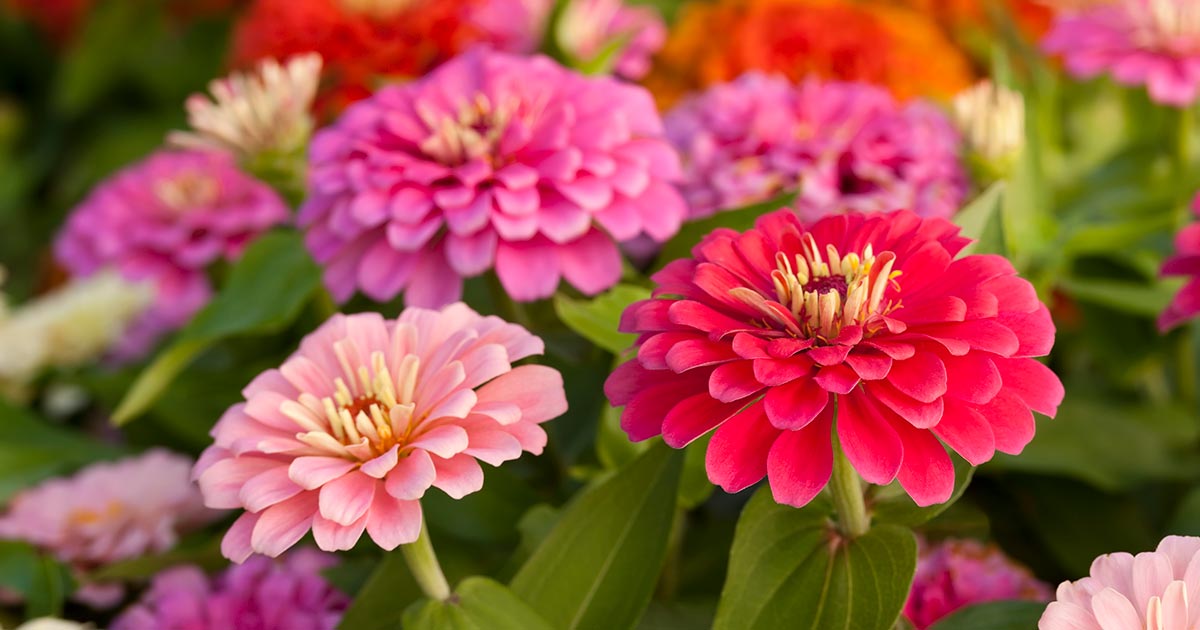
I was also pleased with the camera’s dynamic range. At lower ISO, it’s possible to capture a lot of details in shadowed and highlighted areas (if they weren’t clipped) and recover them during the photo retouching stage without damaging the picture’s quality. In addition, this Fujifilm camera has 4 latitude stops and Fujifilm’s own Dynamic Range mode.
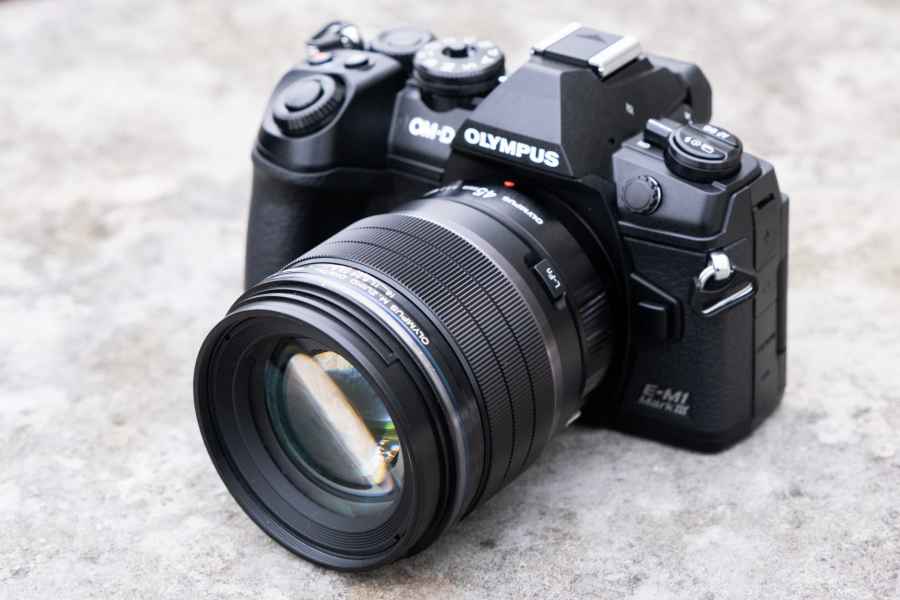
Zoom Type: optical zoom 1.00x | Sensor: 6.3 MP | Focusing: AF | Screen: 3-inch | Weight: 1.10 lbs
Whenever I need the best macro camera that can handle shadows or highlights, I can rely on E-M1’s two HDR modes that help me make images more detailed. One of them makes subtle adjustments with the other being harsher.
The automatic White Balance offers amazing accuracy that boosts the picture quality and provides a coherent color palette regardless of the shooting conditions, which makes it the best macro camera at this price range.

Unedited images also have nice colors. You can use some of E-M1’s customized color settings if you want to achieve a distinct look for your photographs. Regarding the amount of noise on higher sensitivity values, I must note that this camera has surprised me.
The noise is barely visible at lower ISO settings (up to 1600), after which it becomes more noticeable in the darker parts of the shot. That being said, the image quality remained satisfying all the way up to ISO 6,400.

Zoom Type: optical zoom 1.00x | Sensor: 6.3 MP | Focusing: AF | Screen: 3-inch | Weight: 1.10 lbs
Canon EOS R6 allows you to get incredibly close to your subjects and magnify them to reveal intricate details that are often invisible to the naked eye. Whether it's bugs, flowers, or food, this camera can capture stunning levels of detail. It also offers a wide range of focusing modes and a ring light accessory for shadowless lighting, making it ideal for close-ups.
The camera's high-resolution electronic viewfinder provides a bright and sharp display, perfect for low-light conditions. This is especially important when using a microscope or close-up lenses that require longer focusing times. Additionally, the impressive ISO range of up to 51200 gives you plenty of flexibility in various shooting conditions.
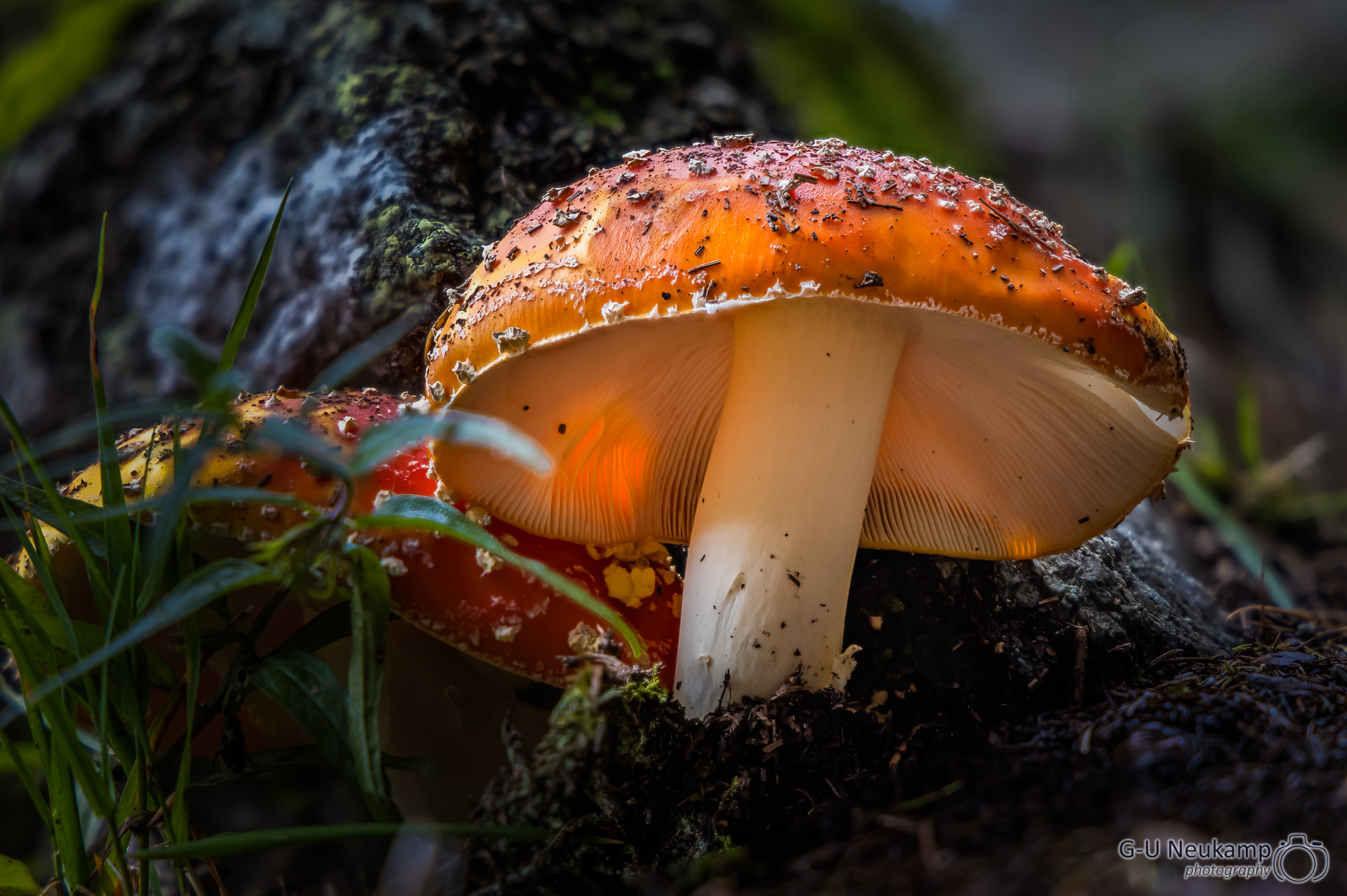
Another advantage of this macro photography camera is the in-body image stabilization system, which works exceptionally well when paired with the right IS lens. This feature allows you to achieve sharp shots in challenging conditions that were previously difficult with cameras for beginners. The camera also offers noise reduction and other image quality settings to help perfect your shots.
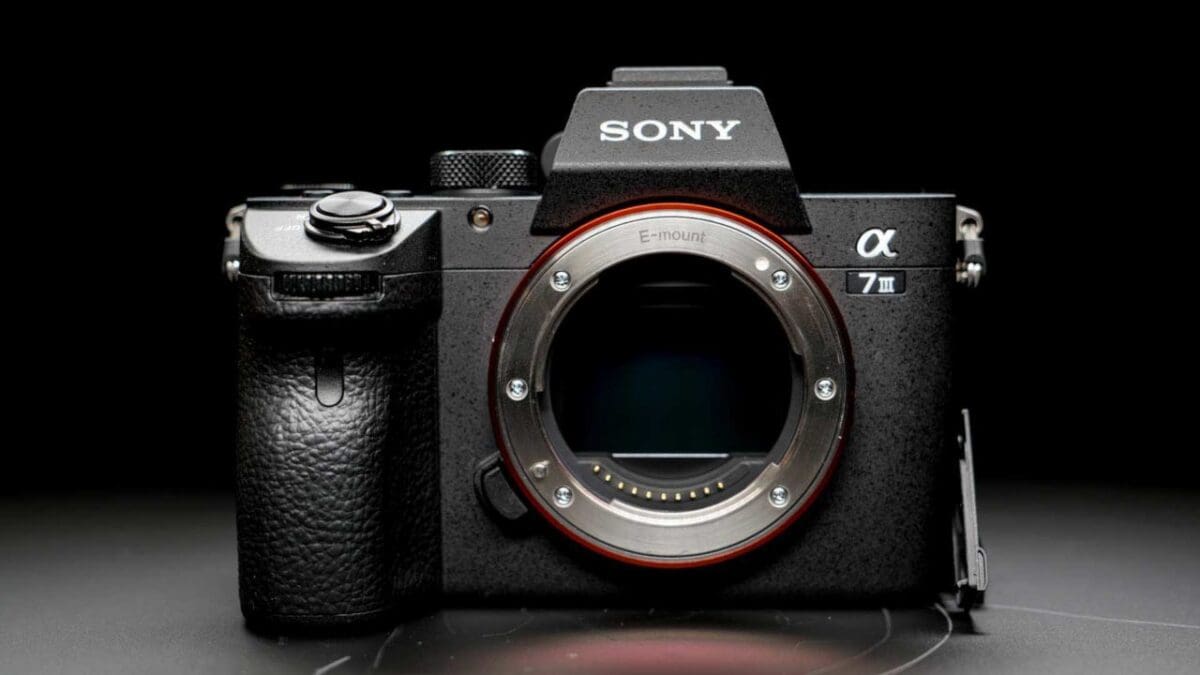
Zoom Type: optical zoom 1x | Sensor: Full Frame (35mm) | Focusing: AF | Screen: 3-inch | Weight: 1.44 lbs
One of the biggest advantages of using the Sony a7 III camera for macro photography is its incredibly high resolution and pixel density. This means that even in low light conditions, you can capture sharp and clear images. The camera also has a large aperture, which allows for a shallow depth of field, perfect for those close-up shots of insects, flowers, and other small objects.
The image quality of the Sony a7 III is exceptional, thanks to its 24MP sensor and superb dynamic range. The sensor is back-illuminated, which means it gathers more light, and it's paired with a new front-end LSI and BIONZ X processor for faster data readout and processing.
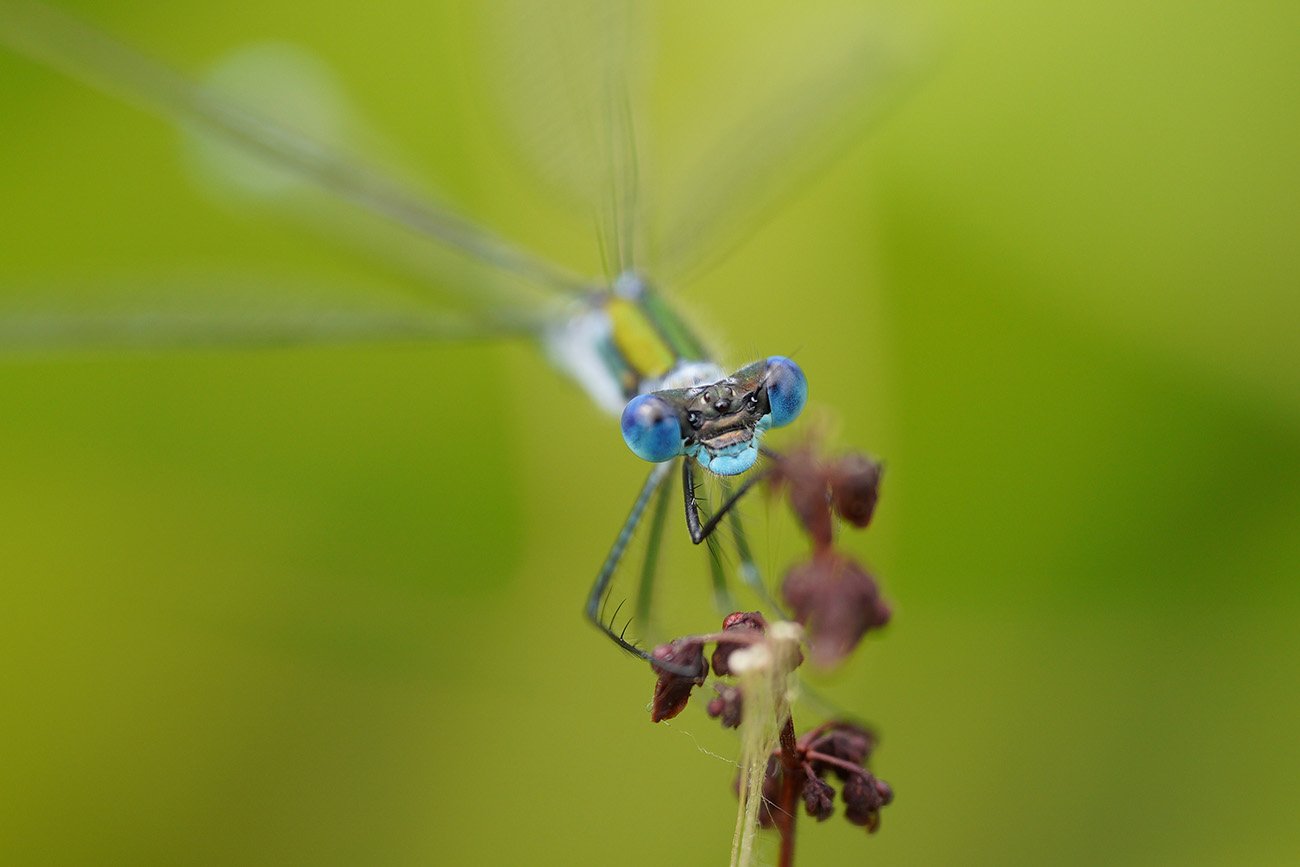
The autofocus performance is also impressive, especially in AF-C continuous focus mode. This Sony camera can track moving subjects and lock on to faces with great accuracy.
It has a joystick for quickly positioning focusing points, which is a handy feature. The touch-focusing capability is also quite useful. The camera has an AF-ON button and a USB C port that supports fast tethering. The 2.36m-dot OLED electronic viewfinder provides bright and clear eye-level viewing.
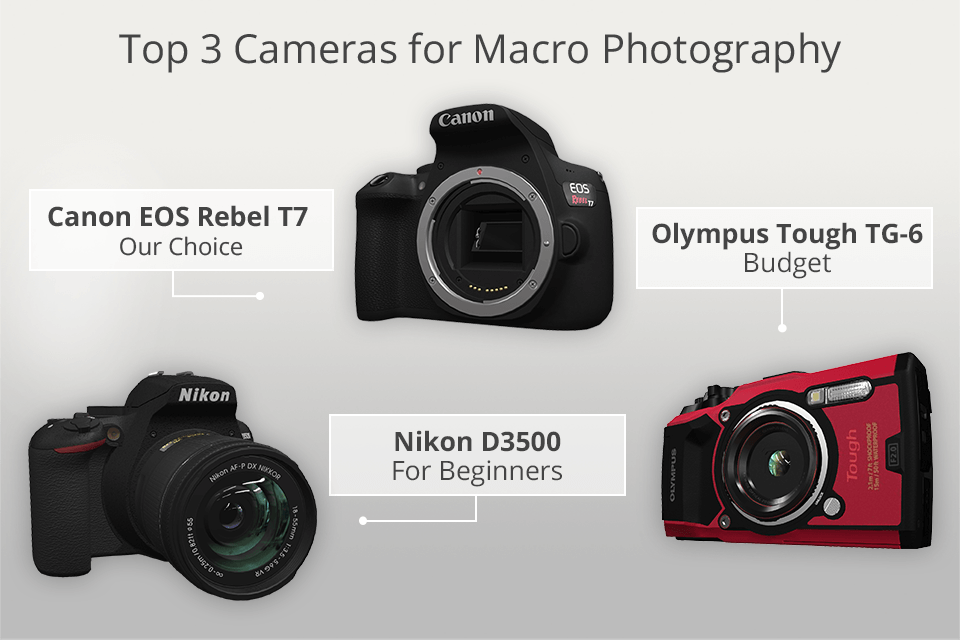
The FixThePhoto team recommends to consider several aspects when choosing the best camera for macro photography.
Lens. The lens is probably the second most vital choice you have to make if your goal is to take great macro photos. A must-have characteristic of a macro lens is 1:1 magnification that allows you to capture objects in their lifelike size. The minimal focus distance is also an important factor since it determines the distance you can have from the subject and still focus accurately.
Display. If you’re leaning towards purchasing a DSLR close up camera, you should give preference to models that have a Live View feature that allows you to use the display as a viewfinder. It’s also great if the camera has an articulating screen since it will help you avoid many uncomfortable situations when taking macro shots.
Focal length. Lastly, there’s one more thing you need to think about when choosing a macro lens. Even though they are mostly designed for one specific purpose, a lot of photographers use them for general needs too. Thus, if you want to find a universal lens that can shoot good macro, a 50mm model can be a great pick. As long as you remember these things when searching for the best camera for close ups, you shouldn’t experience any trouble finding the perfect option for you.
It’s better to use a camera lens with a 50mm focal length or a macro lens. Select an option that suits your budget best. You should be able to zoom in from 1:1 to infinity. If you are wondering what lens suits you best, take a look at this list of macro lenses for any budget.
Point-and-shoot cameras with a macro mode can be used for basic macro pics, but they may not offer the same level of control and image quality as DSLRs or mirrorless cameras with dedicated macro lenses.
Key features to consider include high-resolution sensors for detailed images, close focusing capabilities, fast and accurate autofocus, and the availability of macro lenses.
High-end cameras, such as the Nikon D850, have advanced AF systems known for their high precision, which makes them perfect for macro shooting. However, if your budget is limited, it’s better to select a camera that supports manual focusing. You can turn this option on in the settings.
Select manual focusing, set aperture to f/11 (to achieve a better depth of field, set the aperture to f/16 or f/22). Then, adjust the exposure depending on the lighting situation and set ISO to 100. The focal distance should be 50-100mm. It’s better to adjust the WB depending on the light source.